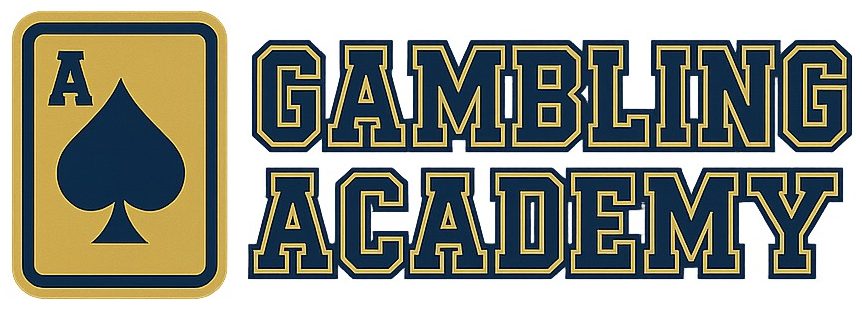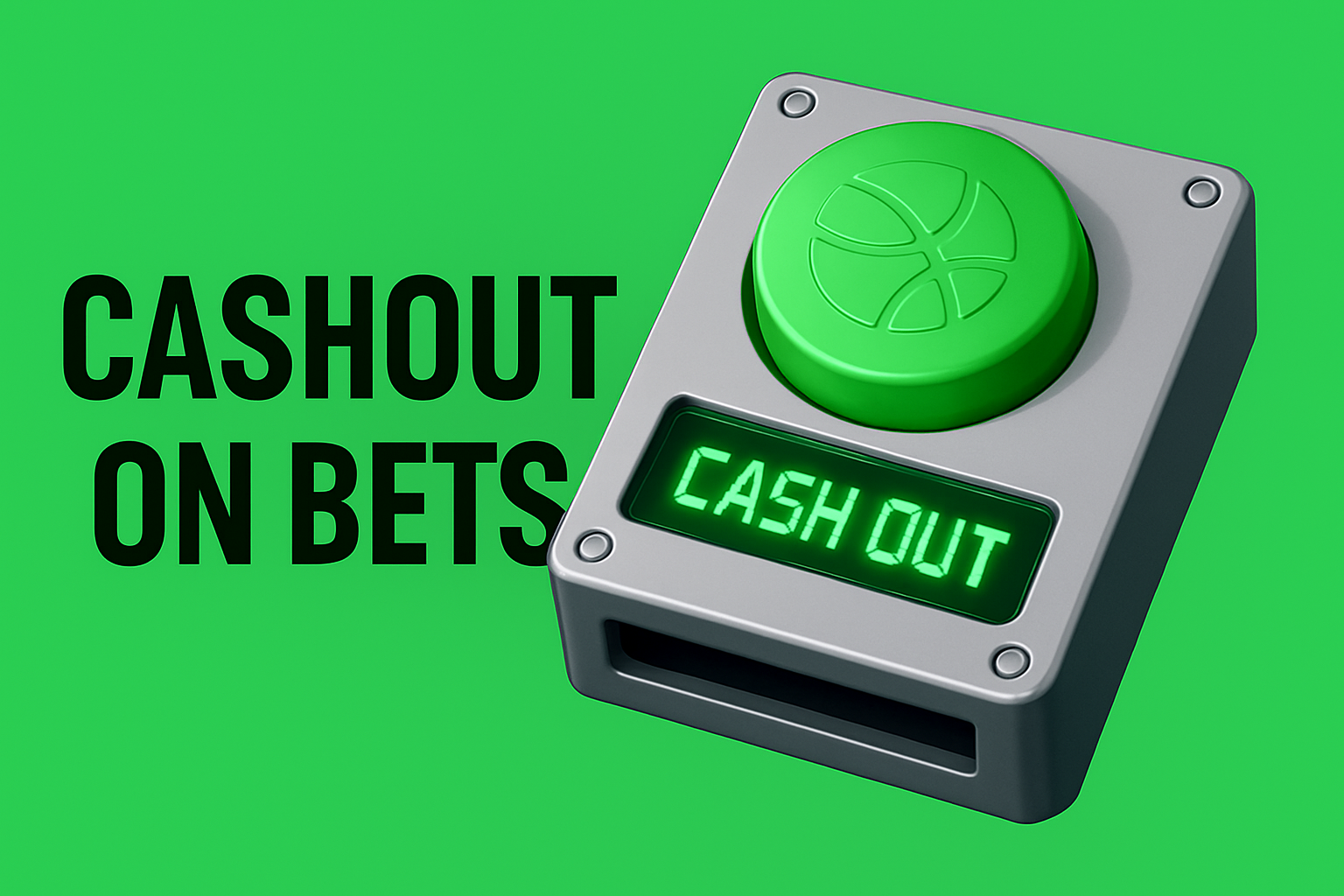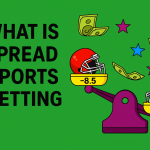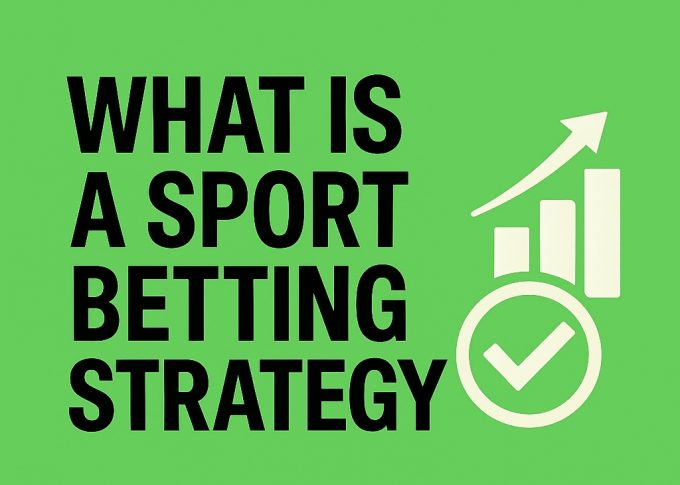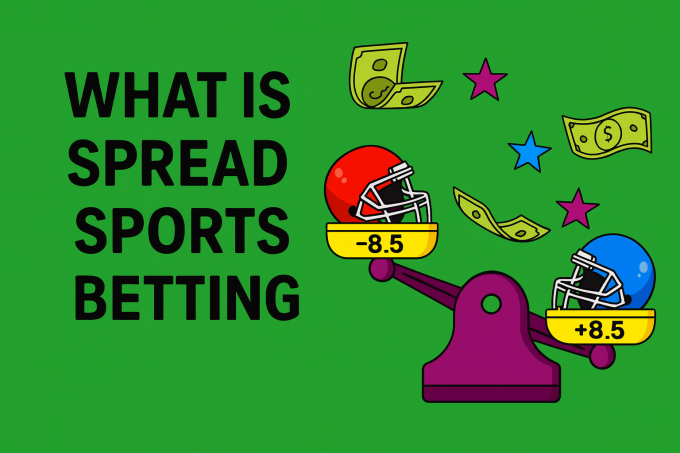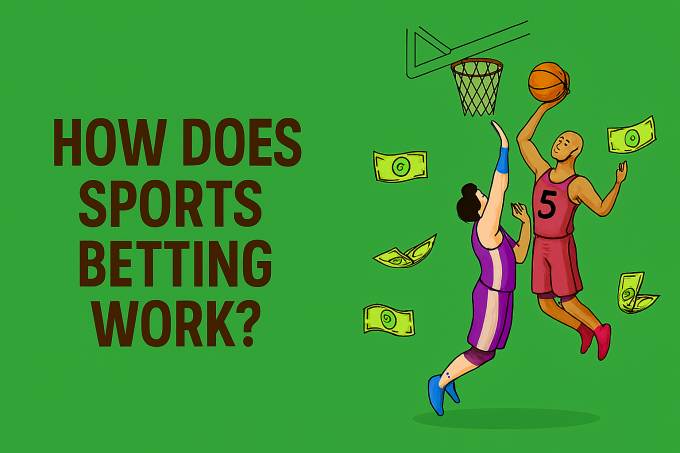As an educator at Gambling Academy, I always emphasize that cashout is one of the most misunderstood functions in sportsbooks. Many new players think it is a “profit guarantee,” others believe it can “save them from losing,” and some assume the sportsbook is trying to trick them with it. The truth is much more balanced and far more interesting.
Cashout is neither a magic button nor a trap it’s a risk-management tool. And like any tool, its usefulness depends on how well you understand it. In this extended guide (over 1500 real words), I’ll explain in clear, friendly language what cashout is, how it works, why sportsbooks offer it, when it makes sense to use it, and how to avoid common mistakes.
I’m keeping everything educational, transparent, and aligned with responsible gambling principles.
Online gambling involves risk. Always play responsibly and only with money you can afford to lose. Check your local laws before betting.
What Cashout Really Is
Cashout is a feature that allows you to close a sports bet before the event finishes. Instead of waiting until the match is over, you can accept an amount offered by the sportsbook that reflects the current likelihood of your bet winning or losing.
In simple terms:
The sportsbook offers to “buy” your bet at its current value.
This value is constantly adjusting depending on what happens during the event goals, red cards, momentum shifts, injuries, and even subtle statistics like expected goals or serve dominance in tennis.
What makes cashout so interesting is that it gives you control. Instead of being forced to wait until the final whistle, you can lock in profit, cut losses early, or simply reduce volatility in your bankroll.
Why This Feature Exists
The idea behind cashout is mutual benefit:
- The bettor gets more flexibility.
- The sportsbook stabilizes its risk.
- Live betting becomes more dynamic.
- Users stay engaged throughout the match.
Cashout wasn’t created to “help bettors win more,” nor to “trick them.” It exists because both sides get something from it. Understanding this helps you make wiser decisions.
How Cashout Is Calculated
Cashout is not random. It is calculated using real-time probabilities derived from live odds, which reflect the sportsbook’s estimation of how the match is unfolding.
The cashout formula considers many variables:
Main Factors Affecting Cashout
| Factor | Expanded Meaning | Effect on Cashout |
| Live odds | Dynamic prices adjusting to events | Odds move in your favor → cashout increases |
| Implied probability | The probability hidden inside the odds | Higher probability = higher cashout |
| Stake | Money you originally bet | Larger stake → larger possible cashout |
| Time remaining | Amount of match time left | Less time = more stable cashout |
| Initial risk (opening odds) | How risky your original pick was | High-risk bets result in more volatile cashouts |
| Match events | Goals, red cards, momentum shifts | Cause instant changes in cashout |
| Market liquidity | How much money is in the market | Low liquidity can suspend or reduce cashout |
Practical Example
If you bet $10 at odds 3.00, your initial implied probability is about 33%.
If during the match the odds drop to 1.90 (≈53%), the cashout increases because your position is now statistically stronger.
This means cashout isn’t emotional it’s mathematical.
Types of Cashout: Full, Partial, and Auto
Full Cashout
Full cashout means closing the entire bet for the amount offered.
This option is useful when:
- The match shifts clearly against your analysis
- A late injury or red card makes your initial pick unlikely
- You want guaranteed profit in a volatile match
- You prefer a stable bankroll over risky potential gains
However, full cashout also means you completely give up your original prediction. If the match ends in your favor, you’ll feel the frustration of “leaving money on the table,” which is why emotional control is key.
Partial Cashout
Partial cashout allows you to close a portion of the bet while keeping the rest active.
This is especially helpful for new bettors who:
- Want to protect part of their stake
- Want some guaranteed return but still like the excitement
- Prefer risk splitting rather than all-or-nothing outcomes
Example:
If you bet $20 and cashout is $15, closing 50% recovers $7.50 while keeping $10 in play. It’s a safer, more balanced approach that many disciplined bettors prefer.
Auto Cashout
Auto cashout closes your bet automatically when the value reaches a number you set.
You choose:
- The profit level at which you want to exit
- Or the minimum loss you are willing to accept
This is a great tool if:
- You are prone to emotional decisions
- You can’t watch the game
- You want to stick to a predefined strategy
- You need discipline in high-risk parlays
The main risk is setting unrealistic thresholds that never activate or setting them too low and missing better opportunities.
Key Betting Terms with Expanded Definitions
To fully understand cashout, you must understand the terminology behind sports betting. Here are the most important terms, all explained in depth.
Stake
Your stake is the amount of money you place on a bet.
Cashout calculations always start with your stake as a reference.
Odds
Odds represent the price of a potential outcome in a sports event. They tell you:
- How much you would win
- How likely the sportsbook thinks the outcome is
Low odds = higher probability
High odds = lower probability
Odds are also the foundation of every cashout value.
Implied Probability
The hidden probability behind every odd.
It’s calculated using:
Probability = 1 / odds
This allows you to compare your analysis to the bookmaker’s.
Expected Value (EV)
EV measures whether a bet is mathematically beneficial over time.
- Positive EV (+EV): good long-term value
- Negative EV (−EV): poor long-term value
A cashout is useful when the offer is mathematically better than the current EV of the bet.
Variance
Variance describes how much your bankroll will rise and fall.
High-variance bets:
- Parlays
- Big underdogs
- Long-shot markets
Low-variance bets:
- Single bets
- Favorites
- Predictable lines
Cashout helps control variance by stabilizing outcomes.
Bankroll
Your bankroll is your total betting budget.
A disciplined player protects their bankroll like a resource, using cashout strategically to reduce catastrophic losses.
Liquidity
Liquidity means how much money is flowing in the market.
Low liquidity can:
- Delay cashout
- Reduce the offer
- Suspend the feature
- Lead to inflated or deflated odds
Rollover
Rollover is the requirement needed to clear a bonus.
If you cash out a bonus bet, it usually does not count toward the rollover, and some sportsbooks may cancel the bonus entirely.
Cashout Suspension
Cashout can be suspended for:
- Goals
- VAR checks
- Red cards
- Injuries
- Market freezes
- System recalculations
Suspension is normal and temporary.
Real-World Cashout Scenarios
Scenario 1: Winning Situation
You bet $10 on a team at odds 2.40.
The team scores early, odds drop to 1.60, and the sportsbook offers $15.80 as cashout.
You might take the cashout if:
- The team is playing poorly despite leading
- The opposing team is growing stronger
- You want guaranteed profit
Or you might let it ride if:
- Your team looks dominant
- You believe the market underestimates the risk
Scenario 2: Losing Situation
Your team is down 1–0.
Odds jump to 5.00.
Cashout drops to $2.10.
This is useful ONLY if your original analysis was clearly wrong.
If your team shows signs of a comeback, accepting the cashout too early eliminates potential profit.
Scenario 3: Parlay Cashout
You place a 5-leg parlay.
Four legs have already won.
The last one happens later in the day.
Potential payout: $150
Cashout offer: $62
Taking the cashout is rational if the last leg is risky.
Letting it run may be reasonable if the final game strongly favors your selection.
This is where personal preference and risk tolerance matter.
When Should You Use Cashout?
| Situation | Use Cashout | Avoid Cashout |
| Match swings against your analysis | ✔ | |
| You need to lower variance | ✔ | |
| You’re nervous or acting emotionally | ✘ | |
| Your pick is dominating clearly | ✘ | |
| Stats contradict your initial prediction | ✔ | |
| You’re trying to chase losses | ✘ | |
| You hold a risky parlay | ✔ |
Psychological Side of Cashout
Cashout is not only mathematical; it’s emotional. Many bettors misuse it because of psychological biases.
Fear of Losing
Fear makes players cash out too early even when their pick is strong.
Euphoria After a Goal
A small profit appears → players click “cashout” instantly without thinking.
Impulsiveness in Live Betting
Fast events, especially in soccer or basketball, cause rushed decisions.
Illusion of Safety
Many players think cashout eliminates risk.
It doesn’t—it simply changes the form of risk.
My advice always remains:
“Use cashout because your analysis changed, not because your emotions changed.”
Cashout by Sport
| Sport | Cashout Stability | Why |
| Soccer | Medium | Goals cause extreme volatility |
| Tennis | High | Every point shifts the odds |
| Basketball | Low | Frequent scoring makes odds unstable |
| UFC/MMA | Very Low | One punch changes the entire market |
| eSports | Medium | Based on game objectives and momentum |
Responsible Gambling Comes First
As an educator, I always say:
“Strategy is important, but responsibility is essential.”
- Don’t cash out to recover past losses.
- Don’t increase stakes because cashout “feels safe.”
- Don’t bet money you actually need.
- Create limits and stick to them.
- Pause if you feel stressed or frustrated.
Your wellbeing is more important than any match.
Conclusion
Cashout is a powerful option when used wisely. It’s not designed to help you win more money, nor is it meant to rescue bad bets. Instead, cashout is a mechanism for managing risk, adjusting your position, and controlling volatility in your bankroll.
My recommendation as a Gambling Academy educator is simple:
Use cashout as a logical tool, not an emotional reaction.
Analyze the match, evaluate probabilities, and make decisions with calm and responsibility.
